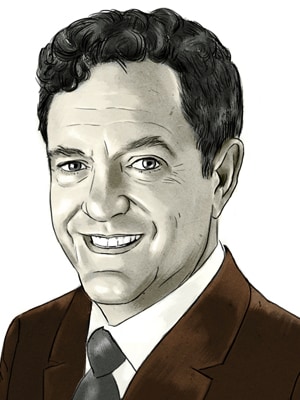
With Modi as PM, it is India's Time in the World
One can expect tangible results from Modi, but he will need a bit of luck too
I was filled with dread as the giant Airbus 380, which looks like a flying Baby Beluga whale, dropped me and 524 other passengers at Mumbai’s Chhatrapati Shivaji International Airport. Welcome to India, the land of dreams and utter dysfunction. Get ready for a one-hour shuffle through customs, I thought, followed by car confusion and a two-hour drive to the Taj Mahal Palace hotel.
Except that didn’t happen. Passing through customs was a breeze. Getting into the car, I looked over my shoulder at the stunning Terminal 2, possibly the most advanced and certainly the most beautiful airport building in the world. The ride to the Taj took 40 minutes.
These are surface impressions, of course. But if the India of five years ago made one worry that a country so gifted in software could never do hard- ware—or infrastructure—well, it’s time to rethink that image. The ducks are lining up for India. The world’s largest democracy could blow its advantages yet again, but I don’t think it will.
One reason is Narendra Modi. A Hindu nationalist and Bharatiya Janata Party leader, Modi became India’s 15th prime minister in May. He’d previously been chief minister of Gujarat, a small northwestern state of 60 million people. During his 12 years at the Gujarat wheel, Modi cut red tape and taxes and made the state investor- friendly. Gujarat now leads India in economic growth and employment.
The question is whether Modi’s methods can scale to a country of 1.2 billion. He is, by temperament, strong-willed and not adverse to bulldozing his political opposition. A condition for shared prosperity, not the other way around. In this, he diverges from India’s recent leaders and anyone named Gandhi. If you cheer for Modi, you hope he’ll be like Lee Kuan Yew, the father of modern Singapore. Mr Lee was often criticised for using a strong hand that stretched Western notions of democracy.
Luck and Courage
Modi will need a bit of luck and a lot of courage. The late monsoon season is likely to cause food shortages, which will add to India’s price inflation. Angst over high food prices might have figured in Modi’s first budget, submitted in July. The cuts to deficits and subsidies were less substantial than many reformers had hoped they’d be. Nevertheless, India’s stock market is up 5 percent since Modi took office. There’s more reason to be hopeful than not.
Prosperity, of course, isn’t caused by government. It’s created by entrepreneurs and entrepreneurial companies. Few companies in the world are better at creating shared prosperity than the Tata Group, a 146-year-old Indian company with roughly $100 billion in revenue. If you hang around the technology world, you know about Tata Consultancy Services. It did $11.6 billion in sales in 2013 and is expected to show $14 billion in 2014.
But Tata is also in airlines, automobiles, steel, electricity, construction, hotels, and food and beverages. Tata has more than 100 lines of business and operates in more than 100 countries. I stayed at a Tata hotel— the luxurious Taj—and was driven around in a beautiful Tata-made car—a Jaguar XJ that’s more reminiscent of a Bentley than the faux Jags of the Ford Motor-ownership era.
How does a global conglomerate of Tata’s size stay in top form across its various industries without reverting to the mean? Tata’s success comes from a blend of strategy, execution and strong cultural values. More than most, Tata puts real thought and muscle behind the oft-neglected cultural side of business.
In Tata’s historic Bombay House headquarters, I spoke with Mukund Rajan—brand custodian and chief ethics officer. Rajan’s dual title hints at the way the company views the world.
“Tata plays a long game,” said Rajan. “In the long run trust, ethics and good corporate citizenship create happiness, which ultimately leads to success.” Rajan says the age of social media and hypertransparency is good for Tata’s historic values. “Those who take shortcuts for the bottom line will be found out sooner.”
If the rest of India follows Tata’s example, expect tangible results from the land of dreams.
Rich Karlgaard is the publisher at Forbes
(This story appears in the 30 November, -0001 issue of Forbes India. To visit our Archives, click here.)






